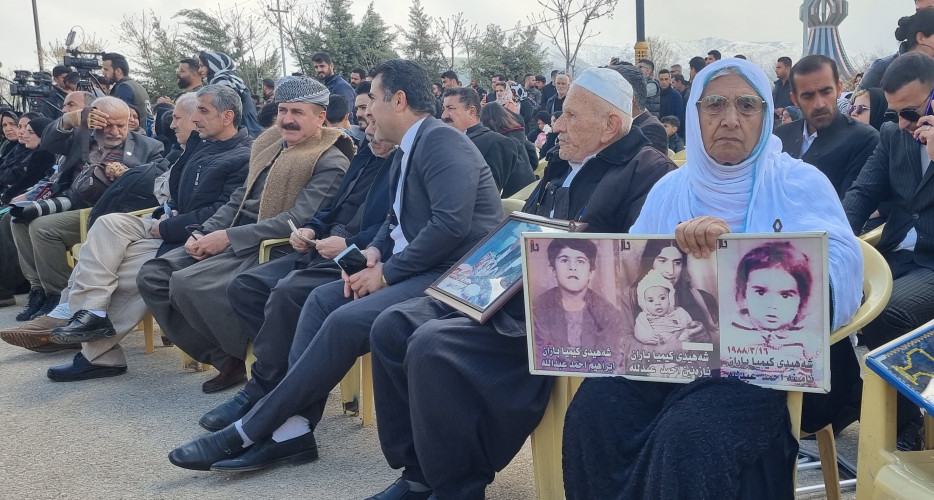
Peregraf
Thirty-four years have passed since the Baath party, led by former Iraqi dictator Saddam Hussain launched a chemical attack on the Kurdish town of Halabja, but its survivors are still in need of serious medical attention that the governments of Erbil and Baghdad have failed to provide.
"Eight of us in the family are survivors of the chemical attack and still receiving treatment. Four of us have eyes problems. We have had some initial tear duct surgeries, but we need to change our eyes’ cornea," Awat Ali told Peregraf.
The attack left a long-lasting effect on thousands of survivors who now suffer raspiratory problems, skin diseases, and eye damage. They require surgeries that they are not financially capable of covering.
"Our eyes are gradually losing vision, they are also dry and we have to use artificial tears. Our eyes’ cornea gets damaged because of dryness and it blurs our vision," Ali added.
Patients are required to have other surgeries before they perform eye surgeries, each costs more than $1,500 and is only covered partly by the government.
According to official statistics, 972 of Halabja’s survivors need long-term treatment. Luqman Abdulqadir, head of Halabja Chemical Attack Victims Association told Peregraf that 25 of them need cornea implantation.
"The victims that are exposed to chemical weapons are different from other patients because those who are affected by the chemicals need other surgeries before changing their eye cornea. They must first replace their sclera and each stage requires time and a budget is needed," Abdulqadir said.
"It needs to be a long-term program, not just two medicines for showing off because chemical weapon victims continuously need medicine and they have to receive these medicines until the day they die," he added.
According to Abdulqadir the patients are currently purchasing their own products and if the medicine is properly used, it costs $300 per month. Only one pump used for the respiratory system is worth $75, in addition to costs.
Although the Kurdistan Regional Government (KRG) used to send patients to Iran for treatment, the aid has decreased, and most of the medicine they have to buy is paid for by themselves, many of which are imported from Iran.
"We have respiratory, skin, and eye diseases. We need about 400,000 dinars a month for each patient if we use our medicines completely, but we are efficient with it because it is expensive and difficult to get," Awat Ali confirmed.
More than 5,000 people were killed in the chemical attack on March 16, 1988. Thousands of others were displaced and injured, most of whom still suffer its side effects and their health deteriorates by the day.
Survivors have long called on the government to help them on the anniversary of the attack, but their calls have been answered with “unfulfilled promises,” so the Halabja Chemical Attack Victims Association and the families of the martyrs boycotted the ceremony this year.
"This stance is due to the remaining problems and abandoning Halabja city in terms of lack of services. During these ceremonies and years, shiny and unfulfilled promises weary the residents of the city, so we will commemorate our martyrs by ourselves" the association said in a statement.
However, there are efforts by the federal Iraqi government to aid these survivors, according to Arian Tawagozi, a Kurdish member of the Iraqi parliament.
"The minister of health promised to provide medicine to these patients and we should send them a list of medicines. Regarding changing the treatment of patients' cornea, they promised to send them to Baghdad or provide the cornea to treat them in the Kurdistan Region," Tawagozi said in a meeting he had held with the health minister.
He also explained that they have asked for psychological support programs, and the provision of medicine that is especially used to treat those affected by chemical weapons, because the medicine they receive from Baghdad is generic.
He also stressed that “there are rumors that the Patriotic Union of Kurdistan (PUK) and Kurdistan Democratic Party (KDP) have consistently received compensation from Baghdad since 2003,” an issue that the MP has followed up on but is yet to receive an answer.